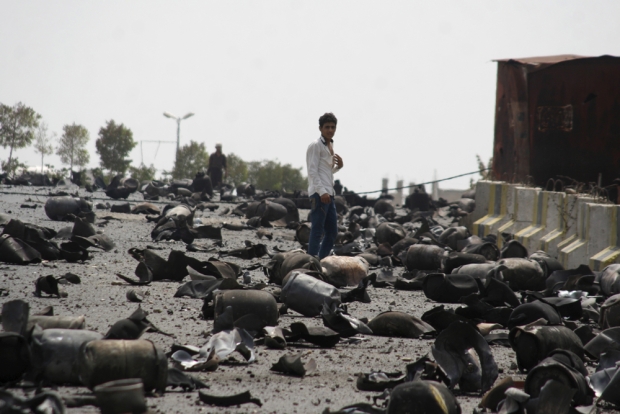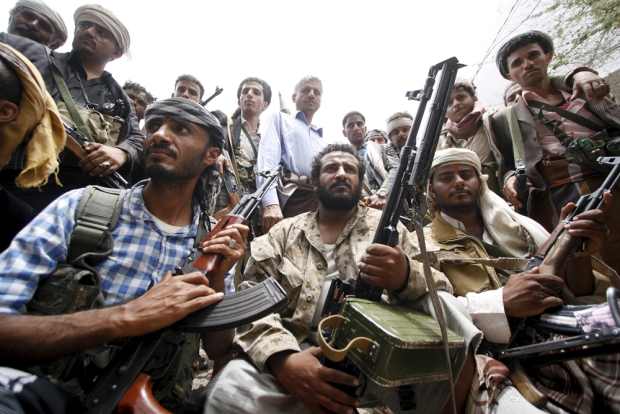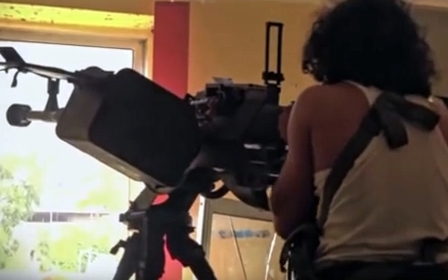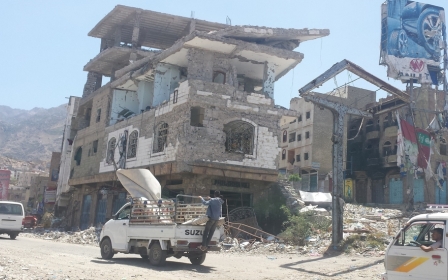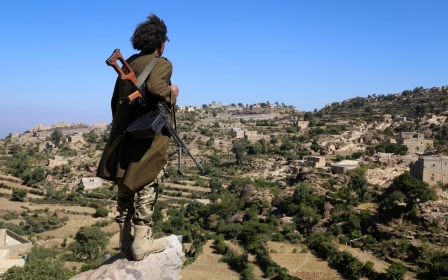Yemen's Salafi warlord - armed by Riyadh, branded a terrorist by Riyadh
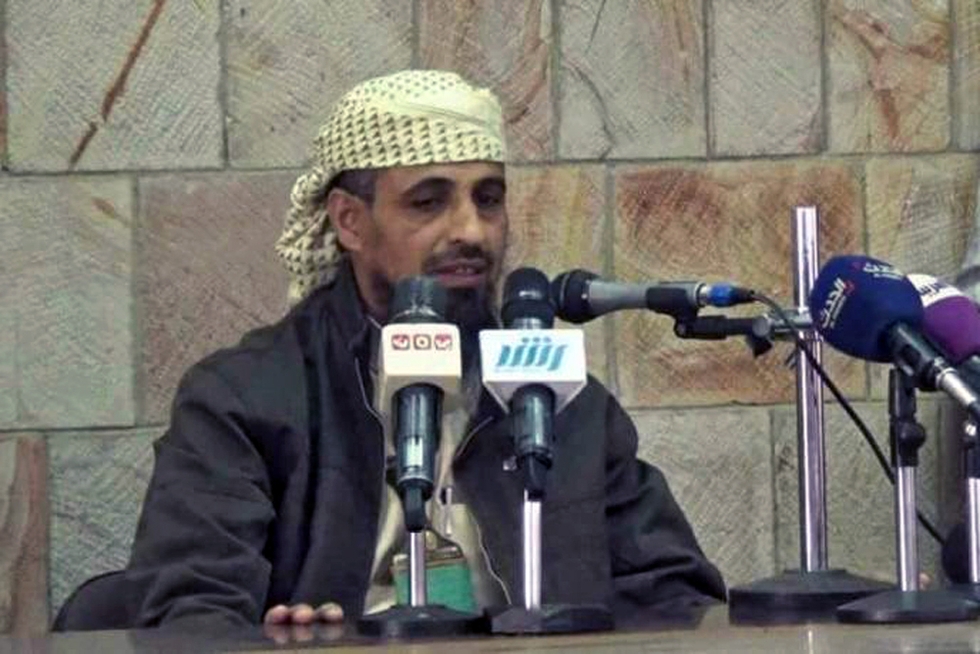
TAIZ, Yemen - Abu al-Abbas commands the largest Salafi force inside Taiz's Popular Resistance. He controls most major routes in and out of the city, dominates most public institutions as resistance finance manager and has for three years been armed and paid by Saudi Arabia and the UAE.
But that could soon change - earlier this week, Abu al-Abbas was designated an al-Qaeda and Islamic State supporter by the Saudis, their Gulf allies, Qatar and the US.
If our leader is al-Qaeda or IS, that means the Saudi-led coalition supports al-Qaeda and IS
- Salafi fighter in Taiz
The latest split among supporters of the government of Abd Rabbuh Hadi raises not only serious questions about Saudi policy in Yemen, but also threatens to bring more violence to a city and region already suffering from years of siege warfare and bombing.
Abbas, real name Adil Abduh Fari, was among the first 11 subjects of the US-Saudi Terrorist Financing Targeting Centre, set up in May, which effectively freezes the very accounts used by Abbas's Gulf paymasters to funnel cash.
And the "Abu al-Abbas battalions" of Taiz now face enemies on all sides - the Houthis, who they have fought for years, rivals vying for power within the Popular Resistance, and now the prospect of being targeted by the Saudi coalition and possibly the US.
The US Treasury Department says Abbas has acted on behalf of al-Qaeda in the Arabian Peninsula, the group's Yemen branch, and has assisted "ISIS-Y" - Islamic State in Yemen.
"As of early 2017, Fari, in his role as a prominent military instructor with AQAP, reportedly commanded an armed AQAP-associated group made up of about 2,000 fighters. Fari used his connections to conduct fundraising for AQAP throughout Taiz Governorate and overseas.
"Fari also made payments to various Sunni militants and ISIS-Y affiliates in Taiz Governorate to secure continued support for ISIS-Y activities in Taiz in late October 2016."
A fighter with the Abu al-Abbas battalion told Middle East Eye of the group's shock at the Saudi endorsement of the terror listing.
"We receive money from the Saudi-led coalition and we coordinate with their air force to target the Houthis," he said.
"They provide us with weapons. Abu al-Abbas holds monthly meetings with coalition leadership in Aden. The last meeting was early this week.
"If our leader is al-Qaeda or IS, that means the Saudi-led coalition supports al-Qaeda and IS.
"From now, we became a third party in Yemen war. We have two enemies: the Houthis and the Gulf countries," he said, but added that there was no plan to fight "the new enemy" if it did not target them.
Balance of power
The effects of the listing may have serious implications for the balance of power in Taiz as Abbas's opponents, including those within the Muslim Brotherhood-linked Islah party, call for his removal from power.
Esam, a member of Islah in Taiz, said: "Abu al-Abbas considers himself to be the government in Taiz. When the delegation of the [Hadi] government visited Taiz early this month, he refused to hand over control of public institutions.
"We do not want to see militias take over Taiz, we need the security forces to stop the militias and control all public institutions. All militias should go to fight and leave government to others.
"We are not happy that Abu al-Abbas faces sanctions, but we need international pressure that forces Abu al-Abbas to work with the [Hadi] government."
All militias should go to fight and leave government to others
- Esam, Isla party member
Still, members of the Nasserist Unionist People's Organisation back Abbas for his militia's victories against the Houthis, and say he is the man who protects Taiz.
Khater Rajeh, a party member, told MEE: "The Salafis are the strongest force in Taiz, and Saudi Arabia does not want to see an independent strong force in Taiz."
He said that this accusation against Abu al-Abbas will create new problems in Taiz city, confirming that this is the goal of Saudi Arabia, which does not want to liberate Taiz from the Houthis.
"The Saudi coalition may stop the financial support, but Abbas can carry on fighting with co-operation from his local allies."
History of war
The battle for Taiz was not Abbas' first fight. He was among Salafi students in Dar al-Hadith in northern Dammaj, when it was first besieged by the Houthis in 2011 and finally overrun in 2014, forcing Abbas to flee with others to Taiz.
Back in his home city, Abbas formed his own battalion of Salafi fighters and battled to lift the Houthi sieged on the city. It was at this point he became a favourite of the Saudis and their Emirati allies, drawing money and support from both.
Abbas has himself rejected claims he is al-Qaeda or Islamic State. In an interview in December, he told Yemeni media that his Salafi supporters rejected both groups' harsh religious views, including their policies of denouncing other Muslims as apostates.
His opposition to the Islah party - which itself has recently fallen out with UAE-backed forces in Aden - further endeared him to his paymasters in Riyadh and Abu Dhabi.
Last October, he accused some of the Islahi leaders in Taiz of stealing funds from the Popular Resistance.
But the Salafi fighter spoken to by MEE said the breakdown of the alliance was only a matter of time.
"When Saudi Arabia supported us we did not reject them - but we do not fight for Saudi Arabia.
"The Saudis did not support us when we were exiled from Dammaj," he said. "That disappointed us. This is yet another disappointment."
Something must have gone wrong with Abu al-Abbas
- Fares Nabl, Taiz shopkeeper
Residents of Taiz say they know there are al-Qaeda fighters in Taiz, but insist the Abu al-Abbas battalions are not among them.
Fares Nabil, a resident of al-Thawra district, told MEE: "The fighters of Abu al-Abbas come to buy from my shop and I know some personally. They do not share the thoughts of al-Qaeda.
"There are some leaders of al-Qaeda in Taiz and in other provinces - but the US has not accused them. Something must have gone wrong with Abu al-Abbas."
But Houthi supporters said the listing of Abbas was evidence of what the movement had been saying all along - they were fighting al-Qaeda and IS in Taiz and other provinces.
"The international community did not believe us," said Jamal al-Deen, who lives in the Houthi-controlled capital, Sanaa. "Well, Saudi Arabia has just admitted it was supporting them.
"Any alliances against Yemen will break down. This is just the latest alliance to do so. Only those who fight for the sake of their country will win."
New MEE newsletter: Jerusalem Dispatch
Sign up to get the latest insights and analysis on Israel-Palestine, alongside Turkey Unpacked and other MEE newsletters
Middle East Eye delivers independent and unrivalled coverage and analysis of the Middle East, North Africa and beyond. To learn more about republishing this content and the associated fees, please fill out this form. More about MEE can be found here.


